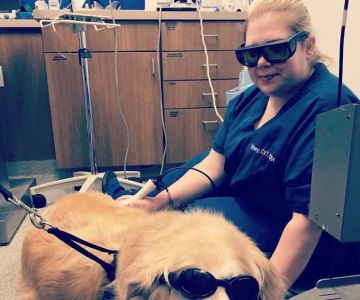Do Veterinary Nurses Get Paid Much? Salary Insights and Career Path
- 1. The Role of a Veterinary Nurse
- 2. Factors Affecting the Salary of Veterinary Nurses
- 3. How Much Do Veterinary Nurses Make? Salary Overview
- 4. Regional Variations in Veterinary Nurse Salaries
- 5. Career Advancement and Salary Growth for Veterinary Nurses
- 6. Real-Life Experiences: What Veterinary Nurses Are Saying About Their Pay
1. The Role of a Veterinary Nurse
Veterinary nurses, also known as veterinary technicians or technologists, play a vital role in the animal healthcare system. They work alongside veterinarians to ensure the well-being of animals, providing medical care, assisting in surgeries, administering medications, and educating pet owners on proper animal care. Unlike human nurses, veterinary nurses work specifically with animals, providing specialized care in veterinary clinics, animal hospitals, and research facilities.
The job of a veterinary nurse is both rewarding and demanding. It requires a deep love for animals, a strong understanding of medical procedures, and the ability to work in a fast-paced environment. From performing routine check-ups to assisting in complex surgeries, veterinary nurses have a significant impact on the health and recovery of animals. However, as with any profession, understanding how much they are compensated for their efforts is essential for those considering a career in veterinary nursing.

9823 W 55th St, Countryside, IL 60525, USA
See Details2. Factors Affecting the Salary of Veterinary Nurses
Several factors influence the salary of veterinary nurses. Some of the most important factors include:
1. Level of Education and Certification
The level of education and certification that a veterinary nurse has can significantly impact their earning potential. While a basic veterinary nursing program may lead to a position as a veterinary technician, further certifications, such as becoming a Licensed Veterinary Technician (LVT) or obtaining specialized certifications in areas like anesthesia or dentistry, can increase job opportunities and salary. Advanced degrees, such as becoming a veterinary technologist, can also improve salary prospects.
2. Experience and Specialization
Experience plays a key role in determining the salary of a veterinary nurse. New graduates typically earn less than those with several years of experience in the field. Additionally, veterinary nurses who specialize in particular areas, such as emergency and critical care or surgery, often earn higher wages due to their specialized skill set. Specializing in high-demand fields allows veterinary nurses to command a premium in the job market.
3. Location
The region in which a veterinary nurse works can greatly affect their salary. Veterinary nurses in urban areas, where the cost of living is typically higher, tend to earn more than those in rural or less populated regions. Additionally, certain states or regions with a high demand for veterinary professionals may offer higher wages to attract talent.
3. How Much Do Veterinary Nurses Make? Salary Overview
On average, veterinary nurses in the United States can expect to earn between $30,000 and $50,000 per year, depending on their level of experience, education, and specialization. Entry-level veterinary nurses typically start with salaries on the lower end of the scale, while those with several years of experience or specialized skills can earn more. Veterinary nurse salaries can also vary based on location, with urban areas generally offering higher wages due to the higher cost of living and demand for services.
For example, a newly graduated veterinary nurse in a small town might earn around $30,000 annually, while an experienced veterinary nurse working in a large city could earn $45,000 to $50,000 per year. Nurses specializing in high-demand areas such as anesthesia or emergency care could potentially earn upwards of $60,000 annually, depending on their location and level of expertise.
4. Regional Variations in Veterinary Nurse Salaries
As with many professions, salary rates for veterinary nurses vary by region. Some states or cities offer higher pay due to a greater demand for veterinary professionals, while others may offer lower wages due to lower demand or a lower cost of living.
1. High-Paying States
Veterinary nurses in states like California, New York, and Massachusetts tend to earn higher salaries. These states have a higher cost of living, but they also have a high demand for veterinary services, making them attractive markets for qualified veterinary nurses. In California, for example, the average salary for a veterinary nurse can range from $40,000 to $60,000 per year, depending on location and specialization.
2. Lower-Paying States
On the other hand, veterinary nurses in rural areas or states with a lower cost of living, such as Mississippi or West Virginia, might earn lower wages. In these areas, the demand for veterinary professionals may not be as high, and salaries could range between $30,000 to $40,000 annually. However, these positions often come with a lower cost of living, which can balance out the wage differences.
5. Career Advancement and Salary Growth for Veterinary Nurses
Veterinary nursing offers a variety of career advancement opportunities that can lead to higher salaries. As veterinary nurses gain experience and further certifications, they can move into specialized roles or managerial positions that command higher wages. Here are some potential career advancements for veterinary nurses:
1. Specialization
Specializing in areas like surgery, dentistry, or emergency care can significantly increase a veterinary nurse's earning potential. Many veterinary nurses choose to pursue additional certifications in these fields, which often come with higher pay and increased job satisfaction.
2. Management and Leadership Roles
Veterinary nurses who are interested in management can move into supervisory or leadership positions, such as veterinary nursing supervisor or practice manager. These roles often come with higher salaries, and some positions even offer benefits like bonuses and profit-sharing.
3. Teaching and Research
Veterinary nurses with advanced degrees or significant experience may transition into teaching roles at veterinary schools or research positions at universities. These positions often come with higher salaries, as well as the opportunity to shape the future of veterinary nursing through education and research.
6. Real-Life Experiences: What Veterinary Nurses Are Saying About Their Pay
Real-life stories from veterinary nurses can offer valuable insights into the salary expectations and career experiences in this profession. Here are a couple of examples from veterinary nurses across the country:
1. Sarah’s Experience in Emergency Care
Sarah, a veterinary nurse specializing in emergency care at a large animal hospital in California, has been working in the field for over five years. She started with a salary of $40,000 but now earns $55,000 annually due to her specialization and the high demand for emergency veterinary care in her area. Sarah appreciates the job stability and the rewarding nature of her work, despite the long hours and high stress.
2. James’ Journey in a Small Town
James, a veterinary nurse in a small town in Ohio, initially earned $32,000 per year at a local veterinary clinic. After gaining additional certification in dental care, his salary increased to $38,000. Although the pay is lower than in urban areas, James enjoys the close-knit community and the flexibility of working in a smaller practice. He’s hopeful that as his experience grows, he’ll have opportunities to earn more or transition into a managerial role.
As these real-life examples show, veterinary nurses’ salaries can vary depending on specialization, experience, and location. It’s important to consider all aspects of the job, including personal satisfaction and career growth, when evaluating potential earnings in this field.
Veterinary nursing is a fulfilling and rewarding profession, and while the salary might not be as high as some other healthcare fields, it offers job stability, the opportunity to make a difference in animals' lives, and room for growth. If you’re considering a career as a veterinary nurse or looking to learn more about the salary potential in this field, check out additional resources and expert advice at Pine Cliff Resort for more information on career opportunities and insights.










